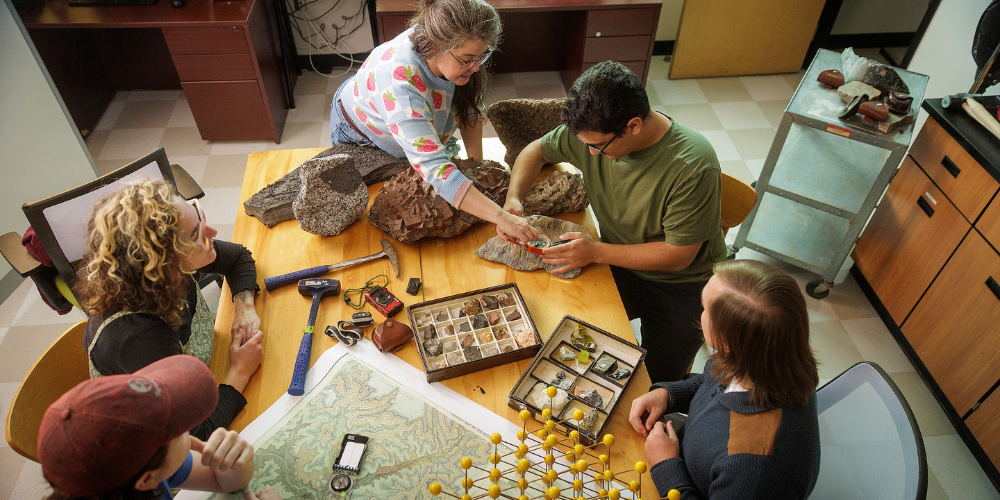Earth Science (Geology) Program

Why study Earth Science?
Study volcanoes in Italy, spend ten days on the Antigonish highlands with the geology field school, or take part in an international collaboration with earth scientists from Mongolia as part of our exchange program; the Earth Science (also known as Geology) program at Saint Mary’s offers these opportunities and more.
Earth Science is the study of the Earth, its components and the processes that affect it. Earth Scientists, or Geologists, seek to understand the Earth and its physical, chemical and biological evolution. They can choose from a very diverse range of careers, including mineral and hydrocarbon exploration, engineering and environmental consulting, volcanology, seismology and other geological, process-based research. They often divide their time among work in the field, the lab and the office.
The Saint Mary’s approach
This valuable degree offers students state-of-the-art laboratories, world-renowned professors, a co-op option and an atmosphere that supports undergraduate research. Students can graduate with an Earth Science Major or Honours, or with a Double Major or Honours with either Geography or Business Studies.
Hands-on learning
This program is as hands-on as it gets, with about 50% of the degree taught in labs or in the field. As an undergraduate student, you’ll be actively involved in research areas such as economic geology, archaeological geology, as well as igneous, metamorphic and sedimentary geology. One particular strength of the program is its emphasis on student research. Our undergraduate students have presented their research internationally.
Sample courses offered:
- Understanding the Earth: Our understanding of Earth evolution is mostly based on the study of minerals, rocks, soils, fossils, and geological structures. With in-class, lab and field components, students study the processes that shape our planet, such as plate tectonics, volcanism, erosion and deposition, metamorphism, and ore formation.
- Global Change: This course examines global changes in the Earth’s crust, oceans, biota and atmosphere caused by natural processes and human activity. Topics covered include the reconstruction of ancient environments, some of which were dramatically changed by meteorite impacts, volcanic activity and glaciation, and the evaluation of accelerating environmental change caused by phenomena such as ozone depletion and greenhouse gas emissions.
- Field Methods: This course introduces you to common field techniques and tools used by geoscientists and provides information on the specific safety considerations for any Earth Scientist working in the field. Students will learn how to make systematic field observations, collect and record geological data in field notebooks and geological maps, identify and measure basic geological structures, and use navigation and geospatial tools and other field equipment. Students will also learn how to synthesize data by constructing their own geological maps, cross sections and stratigraphic logs.
-
Paleontology: History of Life: An account of the 3800 million-year history of life on Earth, including theories of the origin of life, and modes of preservation of organisms as fossils, and the practical use of fossils for geological age, paleogeographic, and paleoenvironment determinations. The course covers the expression of biological evolution in the fossil record, and the major patterns and crises in the history of life, such as mass extinctions. Although the main focus is on the paleontology of invertebrate macrofossils, there will be some coverage of fossil plants, vertebrates, and microfossils.
Career options for earth science majors:
- Exploration geologist
- Petroleum geologist
- Mapping geologist
- Marine geoscientist
- Geochemist
- Economic mineralogist
- Hydrogeologist (groundwater resources)
- Volcanologist
What our professors are saying
“Geology majors at Saint Mary’s University have access to world-class collections for their laboratory courses, gain valuable hands-on experience with state-of-the-art geological tools unique to the region, and participate in applied research with faculty and industry.”
- Dr. Jacob Hanley, Geology Professor